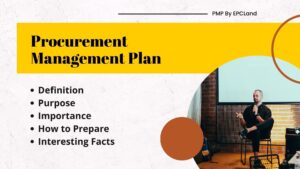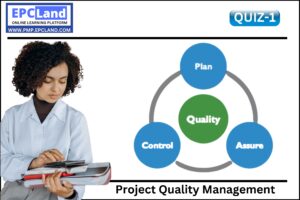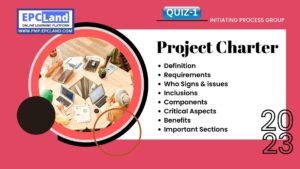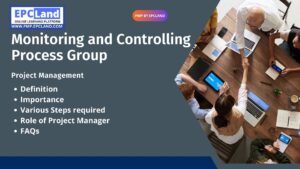Plan Quality Management is a critical aspect of Project Quality Management. It involves establishing and maintaining processes that ensure the delivery of a project that meets its quality requirements and objectives. A well-designed Plan Quality Management process ensures that projects are executed effectively and efficiently, and that their outcomes meet the expectations of stakeholders. In Project Quality Management, the Plan Quality Management process plays a vital role in controlling costs and maximizing value by minimizing the risk of costly defects, rework, and project delays. The process involves identifying quality standards, defining quality control procedures, and continuously monitoring and measuring progress to ensure that quality objectives are met. By implementing a robust Plan Quality Management process, project managers can ensure that their projects are delivered on time, within budget, and with the desired level of quality.
What is the Importance of “Plan Quality Management Process” in Project Quality Management
The Plan Quality Management Process is important in Project Quality Management for several reasons:
- Reduces costs: By identifying and addressing potential quality issues early on, the Plan Quality Management Process helps to minimize the risk of rework, delays, and other quality-related costs.
- Improves efficiency: The process helps to streamline project operations, minimize waste, and optimize resource utilization.
- Enhances customer satisfaction: By delivering projects that meet or exceed quality requirements, the Plan Quality Management Process helps to enhance customer satisfaction and build trust in the project team.
- Increases project success rate: Implementing a robust Plan Quality Management Process helps to increase the likelihood of project success by reducing the risk of project failure due to quality-related issues.
- Supports continuous improvement: The Plan Quality Management Process provides a framework for continuous improvement, allowing project teams to identify areas for improvement and make changes to enhance the overall quality of their projects.
Attempt Quiz-1 on Plan Quality Management Process
What are the Various Steps required in the “Plan Quality Management Process” in Project Quality Management
The various steps involved in the Plan Quality Management Process in Project Quality Management are:
- Define quality standards: Identify the quality expectations of stakeholders and the project team, and establish a set of quality standards that will be used to guide the project.
- Establish quality control procedures: Define the procedures that will be used to monitor and control quality throughout the project lifecycle.
- Assign quality responsibilities: Assign specific quality-related responsibilities to project team members and establish roles and responsibilities for quality control activities.
- Develop quality management plan: Develop a comprehensive quality management plan that outlines the overall approach to quality management for the project, including the quality standards, control procedures, and roles and responsibilities.
- Implement quality control activities: Implement the quality control procedures, including inspections, testing, and audits, to ensure that quality objectives are met.
- Monitor and measure progress: Continuously monitor and measure progress against quality objectives and standards, and take corrective actions as necessary to address any quality-related issues.
- Perform quality reviews: Regularly perform quality reviews to evaluate the effectiveness of the quality management plan and to identify opportunities for improvement.
- Continuously improve quality management: Continuously improve the quality management plan and processes, based on lessons learned and best practices, to enhance the overall quality of future projects.
What are various Tools & Techniques used for “Plan Quality Management Process” in Project Quality Management
The following are some of the tools and techniques used in the Plan Quality Management Process in Project Quality Management:
- Quality control charts: These are graphical representations of quality data over time that are used to monitor and control quality.
- Statistical process control: This is a statistical approach to quality control that involves monitoring and controlling processes to ensure that they are operating within predetermined quality limits.
- Flowcharting: This is a visual representation of the steps involved in a process, used to identify opportunities for improvement and to simplify processes.
- Root cause analysis: This is a structured approach to identifying the root causes of quality-related issues, used to prevent future problems.
- Inspection: This is a review of a product or service to determine whether it meets quality requirements and standards.
- Test and evaluation: This is a process of evaluating the performance of a product or service to determine whether it meets quality requirements and standards.
- Design of experiments: This is a systematic approach to testing and evaluating the effects of variables on a process or product.
- Process control: This is the ongoing monitoring and management of a process to ensure that it is operating within quality limits and producing desired results.
What are various Inputs required for “Plan Quality Management Process” in Project Quality Management
The following are the inputs required for the Plan Quality Management Process in Project Quality Management:
- Project charter: A document that defines the purpose, objectives, and stakeholders of a project.
- Stakeholder requirements: A list of the requirements and expectations of stakeholders, including quality requirements.
- Cost management plan: A document that outlines the approach to cost management for the project, including budget, cost estimates, and cost control procedures.
- Project scope statement: A document that defines the boundaries of a project, including the deliverables and requirements.
- Project schedule: A document that outlines the timeline and dependencies for a project, including start and end dates, milestones, and task durations.
- Risk management plan: A document that outlines the approach to risk management for the project, including risk identification, analysis, and response strategies.
- Organizational processes and procedures: The processes and procedures used by the organization for quality management and quality control.
- Historical information: Data and information from previous projects, including quality management plans, results of quality reviews, and lessons learned.
What are various Outputs required for “Plan Quality Management Process” in Project Quality Management
The following are the outputs required for the Plan Quality Management Process in Project Quality Management:
- Quality management plan: A comprehensive plan that outlines the approach to quality management for the project, including quality standards, control procedures, and roles and responsibilities.
- Quality checklists: Checklists used to verify that quality requirements and standards are being met.
- Quality control measurements: Data and information collected through quality control activities, such as inspections, testing, and audits.
- Quality reports: Reports summarizing the results of quality control activities, including the status of quality objectives and the effectiveness of quality management processes.
- Change requests: Requests for changes to the quality management plan or processes, based on the results of quality control activities and the identification of opportunities for improvement.
- Accepted deliverables: Products or services that meet quality requirements and standards and have been accepted by stakeholders.
- Project management plan updates: Updates to the project management plan, including the cost management plan, schedule, and risk management plan, based on the results of quality control activities and any necessary changes to the quality management plan.
- Lessons learned: Information and insights gained from the Plan Quality Management Process, including best practices and areas for improvement, that can be applied to future projects.
What is Role of Project Manager in “Plan Quality Management Process” in Project Quality Management
The Project Manager plays a critical role in the Plan Quality Management Process in Project Quality Management. The responsibilities of the Project Manager include:
- Developing the quality management plan: The Project Manager is responsible for developing a comprehensive quality management plan that outlines the approach to quality management for the project, including quality standards, control procedures, and roles and responsibilities.
- Ensuring quality requirements are met: The Project Manager is responsible for ensuring that quality requirements and standards are being met throughout the project.
- Overseeing quality control activities: The Project Manager is responsible for overseeing quality control activities, such as inspections, testing, and audits, to ensure that they are conducted effectively and efficiently.
- Communicating quality information: The Project Manager is responsible for communicating quality information to stakeholders, including the status of quality objectives and the results of quality control activities.
- Managing changes to the quality management plan: The Project Manager is responsible for managing changes to the quality management plan based on the results of quality control activities and the identification of opportunities for improvement.
- Managing risk: The Project Manager is responsible for managing risk associated with quality control activities, including the identification of potential quality issues and the development of strategies to address those issues.
- Promoting continuous improvement: The Project Manager is responsible for promoting continuous improvement by incorporating lessons learned from the Plan Quality Management Process into future projects.
Attempt Quiz-2 on Plan Quality Management Process
Final Take Away on “Plan Quality Management Process” in Project Quality Management
The Plan Quality Management Process in Project Quality Management is critical to the success of any project. It ensures that quality requirements and standards are met and that the project is delivered on time, within budget, and to the satisfaction of stakeholders. The Project Manager plays a crucial role in overseeing the Plan Quality Management Process and managing risk, communication, and continuous improvement. With the right inputs, tools, and techniques, the Plan Quality Management Process can help organizations achieve their project goals and maintain a strong reputation for delivering high-quality projects.
FAQs on “Plan Quality Management Process” in Project Quality Management
- What is the Plan Quality Management Process in Project Quality Management? The Plan Quality Management Process in Project Quality Management is the process of defining and documenting how quality will be managed throughout a project. This process involves developing a quality management plan, identifying and controlling quality risks, and continuously monitoring and improving quality performance.
- Why is the Plan Quality Management Process important? The Plan Quality Management Process is important because it helps ensure that quality requirements and standards are met, and that the project is delivered on time, within budget, and to the satisfaction of stakeholders. It also helps identify and address potential quality issues, and promote continuous improvement.
- Who is responsible for the Plan Quality Management Process? The Project Manager is responsible for the Plan Quality Management Process. They play a critical role in developing the quality management plan, overseeing quality control activities, managing changes to the quality management plan, and promoting continuous improvement.
- What are the inputs for the Plan Quality Management Process? The inputs for the Plan Quality Management Process include the project management plan, project charter, procurement documents, stakeholder requirements, and quality standards and regulations.
- What are the outputs of the Plan Quality Management Process? The outputs of the Plan Quality Management Process include the quality management plan, quality checklists, quality control measurements, quality reports, change requests, accepted deliverables, project management plan updates, and lessons learned.
- What tools and techniques are used in the Plan Quality Management Process? The tools and techniques used in the Plan Quality Management Process include flowcharting, process analysis, statistical sampling, inspection, control charts, and histograms.
- What is the role of the Project Manager in the Plan Quality Management Process? The Project Manager is responsible for developing the quality management plan, ensuring quality requirements and standards are met, overseeing quality control activities, communicating quality information, managing changes to the quality management plan, managing risk, and promoting continuous improvement.



















